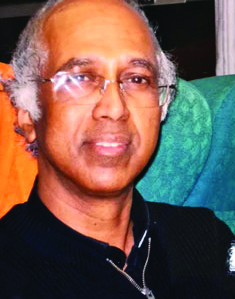Fr. Sebastian Athappilly is an Indian Catholic priest and theologian. He is a member of the Carmelites of Mary Immaculate (CMI), a Catholic religious congregation. Presently, he is hospital chaplain at the University Clinic, Graz, Austria. He is the author of several books and articles. Here he reflects on questions on the purpose of life.
Q: What do you see as the fundamental purpose of human life?
A: It depends on the meaning of the term ‘fundamental’. It ordinarily means basic, in the sense of being the basis or fundament. In this sense, the fundamental purpose of human life is the same as its final or ultimate purpose, namely, to reach God, to give glory and praise to Him. Just as the moon reflects the light (“glory”) of the sun, the creatures reflect the glory of the Creator. While the sub-rational creatures reflect the glory of God automatically, the spiritual creatures can and ought to reflect the glory deliberately, with intellect and will, by knowing, loving, thanking and praising God.
Q: All religions believe in the Hereafter and insist that life does not end with the death of the body because human beings are not their bodies. This is in contrast to all materialistic ideologies that, despite their differences, claim that everything ceases with the death of the body.
How do you think this basic distinction between religions, and all materialistic ideologies is reflected in how they see the purpose of life?
A: For the religions in general the purpose of life is envisaged in terms of a blissful situation beyond the material level and hence beyond the limits of physical death. On the other hand, the materialistic ideologies see the purpose of life exclusively in terms of a happy life in this world. This includes justice, welfare, peace, wealth, health, job, power and position, enjoyment and all kinds of pleasures. All this is, however, only for the time until death. After death, nothing is to be expected any more. Such a vision has nothing to offer to those who have only misery in this world and to those who die at a very young age.
Similarly, such materialistic ideologies have no provision for any kind of sanction, positive or negative, for deeds of selfless love and service or malice and cruelty, as the case might be. With death, saint and sinner, victim and oppressor, all become alike, without any difference at all because they are believed to remain no more. The only possible sanction would be that which can be meted out here on earth, by the state or the society. But this is realistically not guaranteed on this earth.
The materialistic ideologies do not also know forgiveness and reconciliation; their vocabulary is filled with violence, retaliation, revenge, punishment, bloody revolution, despair, disappointment and suicide. At the same time, since they envisage a ‘paradise’ on earth, they are under a big burden of stress and strain in attempting to realize this by human efforts alone.
Q: Do you agree that the purpose of human life can only be understood by bringing in the reality of death and the concept of the Hereafter (which is something that all religions talk of, sometimes in different ways) and that only then can we understand the larger picture of what is life is for and about? As a believer in God and the Hereafter, what difference do you think faith in the Hereafter life after death might make in the way we think of the purpose of life?
A: It is true that we can understand anything only from a larger picture of its setting and context. Similarly, the meaning and purpose of life can only be understood from a larger perspective. By limiting life within the confines of this material world the purely secular and immanent worldviews arbitrarily close all doors and windows to transcendence and thereby also close room for a better scope for understanding the purpose of life.
Faith in the Hereafter, on the other hand, provides a clearer vision of the ultimate purpose of life. It also promotes a noble view of every human person, to the extent that each human being is seen as called to higher vocation to attain God, and not merely as a mass of body to be decomposed and dissolved upon death.
Belief in a life after death can also motivate one to do good things in life and to avoid evil deeds, precisely in view of the sanction to be expected from a Judge God who sees everything. Without this sanction, justice and morality lose all value.

A: It is true, as you have observed, that the prevalent view in the society in terms of the implicit lived message is that the purpose of life is securing a materially well-off situation in terms of wealth, health, job, position, power, etc. But although these are good values, they are not the ultimate values. We can help ourselves and others by reminding ourselves and them that all material things are perishable and that our own death will make an end to our possession of all these good things. We should not be then at the loser’s side when death takes away all what we have amassed. To survive and overcome this loss at the hands of death we need something that transcends death itself. The assurance that God has prepared an indestructible state of affairs for those who live according to His will shall not make us desperate in the face of the sure death.

COMMENTS